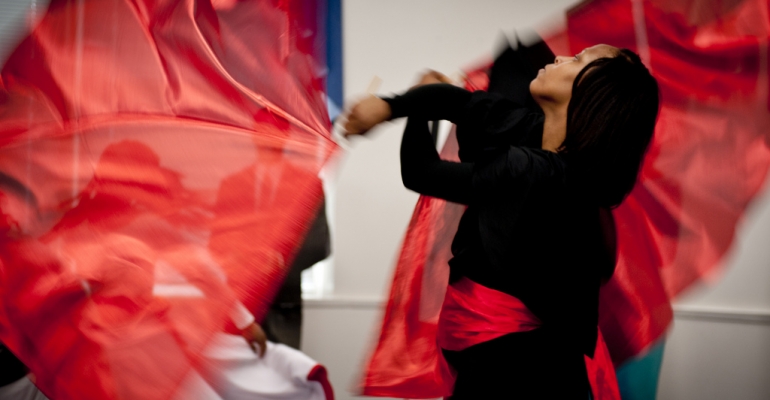
Dancing in the Streets: A Final Response
Hi Jonathan,
I think we’re nearly there, really. We obviously agree in practice on dancing, which is interesting (congregational dancing with singing, yes, because expressionate and worshipful; performative/floaty dancing, no, because distracting and often self-indulgent). Personally I feel like your original answer made it sound much less like anyone should dance in church at all than I have subsequently discovered you believe, but I recognise that the specifics of the question are probably why that was true. The only difference in practice, I guess, is that I would be quite happy using the psalms to exhort people to sing/shout/dance/kneel/play instruments, whereas you wouldn’t (I imagine). But then I can’t imagine the Capitol Hill Baptist crowd would dance that much, even if you did!
I absolutely agree that the danger here is of example/counterexample in favour of continuity vs discontinuity (or explicit authorisation) could continue to the resurrection, and probably will. Nevertheless, your examples strike me as strange, because:
- Priesthood isn’t abrogated in the NT (Rom 15; 1 Pet 2; Rev 5; etc); what is abrogated is the Levitical priesthood as a means of mediating between God and man within the tabernacle/temple setup, which clearly is abrogated in Christ (Heb 7-10 etc);
- Festivals and new moons and Sabbaths are also explicitly described as the shadow, the substance of which is Christ (Col 2);
- The circumcision of Gentiles to join the people of God is explicitly ruled out (Acts 15; Gal 5; etc); and
- Baptism is said to be by faith (you know the verses!)
- No indication whatsoever is given that dancing is a) exclusively bound up with the tabernacle/temple system, b) a shadow of things to come, or c) ethnically specific to Jews.
Without those examples, there is no obvious reason to require OT truths about worship practices to be restated in order to be received by the NT church, or to operate with the assumption of discontinuity (whether you like that word for it or not!) when it comes to worship. Given the three reasons I gave in my previous email—which, of course, were defending the presumption of OT/NT continuity, not the practice of dancing, so I don’t think your criticisms quite hit the mark here—I think the presumption of continuity unless otherwise stated, rather than discontinuity unless otherwise stated, is more hermeneutically robust (and less likely to lead to Marcionism!)
Having said all that, I think I understand why you see things differently, so I think we’re probably done for this discussion, and I really appreciate all your time. Thanks so much for all this!
Love,
Andrew